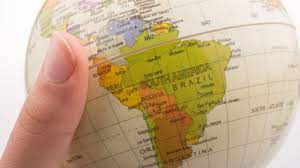The Economist: Rusia corre el riesgo de volverse ingobernable y caer en el caos
La oposición al Presidente Putin es cada vez mayor en el país

Cuando el presidente de Rusia, Vladimir Putin, invadió Ucrania el 24 de febrero de 2022, se propuso apoderarse de su territorio, privarla de su soberanía, eliminar la idea misma de su identidad nacional y convertir lo que quedaba de ella en un Estado fallido. Tras meses de feroz resistencia de Ucrania, su condición de Estado y su identidad son más fuertes que nunca, y todo lo que Putin pretendía infligir a Ucrania está afectando a su propio país.
La guerra de Putin está convirtiendo a Rusia en un Estado fallido, con fronteras incontroladas, formaciones militares privadas, una población que huye, decadencia moral y la posibilidad de un conflicto civil. Y aunque la confianza de los líderes occidentales en la capacidad de Ucrania para resistir el terror putiniano ha aumentado, hay una creciente preocupación por la capacidad de la propia Rusia para sobrevivir a la guerra. Podría volverse ingobernable y caer en el caos.
Consideremos sus fronteras. La absurda e ilegal anexión por parte de Rusia de cuatro regiones de Ucrania -Kherson, Donetsk, Luhansk y Zaporizhia- antes de que pudiera establecer un control total sobre ellas, la convierte en un Estado con territorios ilegítimos y una frontera fluida. «La Federación Rusa, tal y como la conocemos, se está autoliquidando y pasando a una fase de Estado fallido», afirma Ekaterina Schulmann, politóloga. Su administración, señala, es incapaz de llevar a cabo sus funciones básicas. La anexión no disuadirá a las fuerzas ucranianas, pero creará precedentes para las propias regiones de Rusia en estado de agitación, incluidas las repúblicas del Cáucaso Norte, que probablemente busquen irse si el gobierno central empieza a aflojar su control.
Otro rasgo de un Estado fallido es la pérdida del monopolio del uso de la fuerza física. Los ejércitos privados y los mercenarios, aunque están oficialmente prohibidos en Rusia, están floreciendo. Evgeny Prigozhin, un ex convicto apodado «el chef de Putin» y testaferro del Grupo Wagner, una organización mercenaria privada, ha estado reclutando abiertamente a prisioneros y ofreciéndoles indultos a cambio de unirse a sus fuerzas. Wagner, dice, no desea ser «legalizado» ni integrado en las fuerzas armadas. Lo mismo podría decirse de la fuerza controlada por Ramzan Kadyrov, antiguo señor de la guerra checheno y actual presidente de Chechenia. Incluso las agencias de seguridad del gobierno ruso están cada vez más al servicio de sus propios intereses corporativos.
El Estado ruso está fallando en la función más básica de todas. Lejos de proteger la vida de su pueblo, representa la mayor amenaza para él, al utilizarlo como carne de cañón. El 21 de septiembre, ante la derrota militar en el campo de batalla de Ucrania, Putin ordenó la movilización de unas 300.000 personas. Mal entrenados y mal equipados, su única función es obstaculizar el avance de las fuerzas ucranianas. Es poco probable que muchos sigan vivos el año que viene por estas fechas.
Crece la preocupación sobre la capacidad de Rusia para sobrevivir a la guerra
La movilización causó una conmoción en Rusia mucho mayor que el comienzo de la propia guerra. Algunos de sus efectos ya son visibles: algunos centros de reclutamiento fueron incendiados y al menos 300.000 personas huyeron al extranjero (además de las 300.000 que se fueron en las primeras semanas de la guerra). La mayoría de ellos son jóvenes, educados y con recursos. El impacto total de su salida en la economía y la demografía del país aún no se ha manifestado, pero la tensión social va en aumento.
Mientras los habitantes de las ciudades huyen, decenas de miles de sus compatriotas más pobres son detenidos y enviados a las trincheras. Al llevar su «operación militar especial» a casa, Putin ha roto el frágil consenso según el cual la gente acordó no protestar contra la guerra a cambio de que la dejaran en paz. Ahora se les dice que luchen y mueran por el bien de su régimen.
Putin no puede ganar, pero tampoco puede permitirse el lujo de terminar el conflicto. Tal vez espere que haciendo que tanta gente colabore en su guerra, y sometiéndola a dosis mayores de su venenosa propaganda fascista, podrá alargar las cosas. El que tenga éxito, o si el flujo de bolsas de cadáveres, junto con el descontento de la élite, resulta en su caída, determinarán cuántas personas más morirán y cuán profunda será la caída de Rusia al abismo.
Como dijo Alexei Navalny, el líder de la oposición encarcelado en Rusia, en una de sus audiencias judiciales: «No hemos podido evitar la catástrofe y ya no nos deslizamos, sino que volamos hacia ella. La única cuestión será saber con qué fuerza tocará Rusia ese fondo y si se desmoronará». El año que viene dará alguna indicación de la respuesta a esa sombría pregunta.
Arkady Ostrovsky es editor en Rusia de The Economist.
Traducción: Marcos Villasmil
===========
NOTA ORIGINAL:
The Economist
Russia risks becoming ungovernable and descending into chaos
There is growing opposition to President Putin at home
When Russia’s president, Vladimir Putin, invaded Ukraine on February 24th 2022, he set out to grab territory, deprive it of sovereignty, wipe out the very idea of its national identity and turn what remained of it into a failed state. After months of Ukraine’s fierce resistance, its statehood and its identity are stronger than ever, and all the things that Mr Putin had intended to inflict on Ukraine are afflicting his own country.
Mr Putin’s war is turning Russia into a failed state, with uncontrolled borders, private military formations, a fleeing population, moral decay and the possibility of civil conflict. And though confidence among Western leaders in Ukraine’s ability to withstand Mr Putin’s terror has gone up, there is growing concern about Russia’s own ability to survive the war. It could become ungovernable and descend into chaos.
Consider its borders. Russia’s absurd and illegal annexation of four regions of Ukraine—Kherson, Donetsk, Luhansk and Zaporizhia—before it could even establish full control over them, makes it a state with illegitimate territories and a fluid frontier. “The Russian Federation as we know it is self-liquidating and passing into a failed-state phase,” says Ekaterina Schulmann, a political scientist. Its administration, she notes, is unable to carry out its basic functions. The annexation will not deter Ukrainian forces, but it will create precedents for Russia’s own restive regions, including the north Caucasus republics, which are likely to head for the exit if the central government starts loosening its grip.
Another feature of a failing state is a loss of monopoly on the use of physical force. Private armies and mercenaries, although officially banned in Russia, are flourishing. Evgeny Prigozhin, a former convict nicknamed “Putin’s chef” and a front man for the Wagner Group, a private mercenary operation, has been openly recruiting prisoners and offering them pardons in exchange for joining his forces. Wagner, he says, has no desire to be “legalised” or integrated into the armed forces. The same could be said of the force controlled by Ramzan Kadyrov, a Chechen former warlord and now Chechnya’s president. Even Russia’s government security agencies are increasingly serving their own corporate interests.
The Russian state is failing in the most basic function of all. Far from protecting the lives of its people, it poses the biggest threat to them, by using them as cannon fodder. On September 21st, faced with military defeat on the battleground in Ukraine, Mr Putin ordered a mobilisation of some 300,000 people. Ill trained and ill equipped, their only function is to stand in the way of the advance of the Ukrainian forces. Many are unlikely to be alive this time next year.
There is growing concern about Russia’s own ability to survive the war
The mobilisation caused a shock in Russia far greater than the beginning of the war itself. Some of its effects are already visible: recruitment centres were set ablaze, and at least 300,000 people fled abroad (on top of the 300,000 who left in the first weeks of the war). Most of them are young, educated and resourceful. The full impact of their departure on the country’s economy and demographics is yet to show, but social tension is rising.
While urbanites flee, tens of thousands of their poorer compatriots are being rounded up and sent into the trenches. By bringing his “special military operation” home Mr Putin has broken the fragile consensus under which people agreed not to protest against the war in exchange for being left alone. Now they are being told to fight and die for the sake of his regime.
Mr Putin cannot win, but he cannot afford to end the conflict either. He may hope that by making so many people collude in his war, and subjecting them to more of his poisonous, fascist propaganda, he will be able to drag things out. Whether he succeeds, or whether the flow of body bags, coupled with the discontent of the elite, results in his downfall, will determine how many more people will die and how far Russia falls.
As Alexei Navalny, Russia’s jailed opposition leader, said in one of his court hearings: “We have not been able to prevent the catastrophe and we are no longer sliding, but flying into it. The only question will be how hard Russia will hit that bottom and whether it will fall apart.” The coming year will give some indication of an answer to that grim question.■
Arkady Ostrovsky Russia editor, The Economist





